Baku. 28 April.REPORT.AZ/ The agreement has been reached in Moscow on April 5 with participation of Azerbaijani and Armenian armed forces representatives to observe a ceasefire regime.
But after Russian Foreign Minister Sergey Lavrov's visit to Yerevan, Armenians began to regularly violate ceasefire.
Demonstrating inability during the battle, Armenian militants fire civilians, living in the contact line villages, from the occupied territories of Azerbaijan using heavy artillery.
Report was told at Aghdam Region Executive Power, as a result of ceasefire violation and artillery shelling by Armenians last night, 8 residents of the region wounded, one killed, 10 houses destroyed, 76 houses damaged, 12 cattle killed, etc.
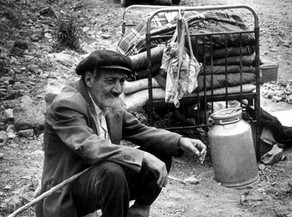
Presenting themselves as oppressed, weak to the world for many years, Armenians demonstrated their psychological complex by firing civilians and their properties.
No doubt, Armenians have resorted to this method while displacing Azerbaijanis from Armenia SSR in 1988 as well as from Nagorno-Karabakh and the surrounding regions at the beginning of 1990. They threatened civilians in Armenia with guns and displaced with the assistance of Soviet troops during former Soviet Union period. Also Armenians committed Khojaly, Aghdaban genocides in Nagorno-Karabakh with support of Russia, forced civilian population to leave their homes.
As seen, during clashes with Azerbaijan, Armenians try mostly to cause damage to civilian population. It is also a traditional method of those, who wanted to create confusion in Azerbaijan after 1990s. As well as by this method, those, who don't support our country, attempt to create chaos and civil strife in the country.
Behavior of Armenia and its supporters recalls 1997. At that time, Armenian President Levon Ter-Petrosyan realized that the possible variant of the conflict settlement was 'gradual solution' plan.
A few years ago answering the question during interview to BBC, when the parties were very close to the peace agreement, he said: 'This was in 1997. The issue could be resolved in that year. Namely, it was possible by returning some territories to Azerbaijan, granting interim status to Nagorno-Karabakh signing the peace agreement and save the final status issue for later. But it did not happen. Because Karabakh residents (namely, Armenian separatists in Nagorno-Karabakh - subsequently elected Armenian President Robert Kocharyan and his team - Report) have demonstrated maximum approach to the issue. They believed that this is not enough and they could achieve more by putting pressure. Not only they, but also some members of my team thought such way. I stated that if you believe in better resolution, join in. I cannot go against it, try and maybe you will achieve.
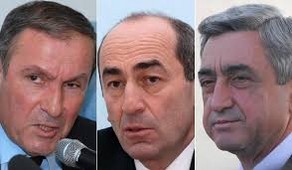
Speaking about Armenia's future after 20 years, Ter-Petrosyan has said that in the worst case, it will be armed conflict with Azerbaijan: 'But I'm optimist. I think it will be better. We have a single problem now, which is distorted power. If to solve it, Armenia will become an ordinary, free country. Also problems will be solved with Azerbaijan as well as relations with Turkey will be normalized. In other words, if Armenia faces a catastrophic situation, it will be fault of only ourselves.
Armenian President Serzh Sargsyan told to Bloomberg in his interview on April 24 that war in Nagorno-Karabakh conflict zone may start 'at any moment' and prospect of the negotiations on the settlement of the conflict is very little.
In the interview, Armenian President has clearly stated for the first time that Yerevan refuses to negotiate and doesn't plan to return to the negotiation process under current conditions: 'The ceasefire reached with the mediation of Russia is not enough for prevention of larger scale war'.
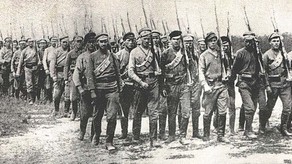
Yesterday Armenian Defense Minister Seyran Ohanyan also made a similar statement: 'In case of violation of the ceasefire, negotiations are out of question'.
But dismissal of Armenia's Deputy Defense Minister for Logistical Support Alik Mirzabekyan, Chief of Communications Services, Major-General Komitas Muradyan and Head of General Staff's intelligence department Arshak Karapetyan in accordance with S.Sargsyan's decree provides background to assume more serious changes in the 'country'.
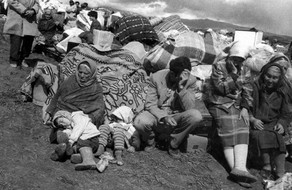
All the events show that the processes similar to those occurred 19 years ago, take place in the occupation state. Liberation of the occupied territories of Azerbaijan is again brought to the attention. Armenian militants lose the battle. The country faces with political, economic and social instability. Under the new constitution, the state will be governed as a new, parliamentary republic. New group shall be established in this regard. Such a group should not reject Moscow. However, the country makes anti-Russian speeches. So, those, who want to return to 19 years ago, liberation of Azerbaijani territories, in other words, prefer integration into the West, also exist in Armenia.
However, Yerevan and Moscow are trying to change the nature and direction of it. Thus, Serzh Sargsyan tries to consolidate power and keep the situation in the occupied lands of Azerbaijan frozen.

In fact, this statement reveals Moscow's position on the settlement of the Nagorno-Karabakh conflict. With words "No bloodshed " Dmitry Mevedev makes a political move. Everybody knows real culprit of bloodshed.
So today, April 28 is the day when Bolsheviks had occupied Azerbaijan. 96 years have passed since the collapse of the Azerbaijan Democratic Republic. Armenians with the help of their patrons and in many cases with their participation fought against Azerbaijan Democratic Republic, Azerbaijan Soviet Socialist Republic and Azerbaijan Republic using political and armed tricks. They are still continuing this wrong way. Because they serve interests of others. It is the same today as it was 96 years ago.
Simply, the Armenian government and its supporters are acting like ostridge. It is called an 'ostrich' policy. He can not hide, hiding his head in the sand.


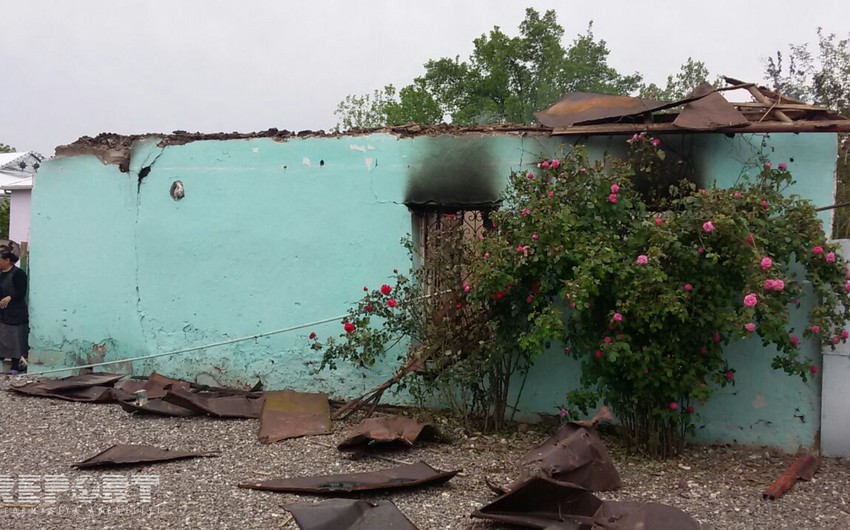 https://static.report.az/photo/abbc4ded-ebc7-4a28-89e0-d4f26d151b52.jpg
https://static.report.az/photo/abbc4ded-ebc7-4a28-89e0-d4f26d151b52.jpg

